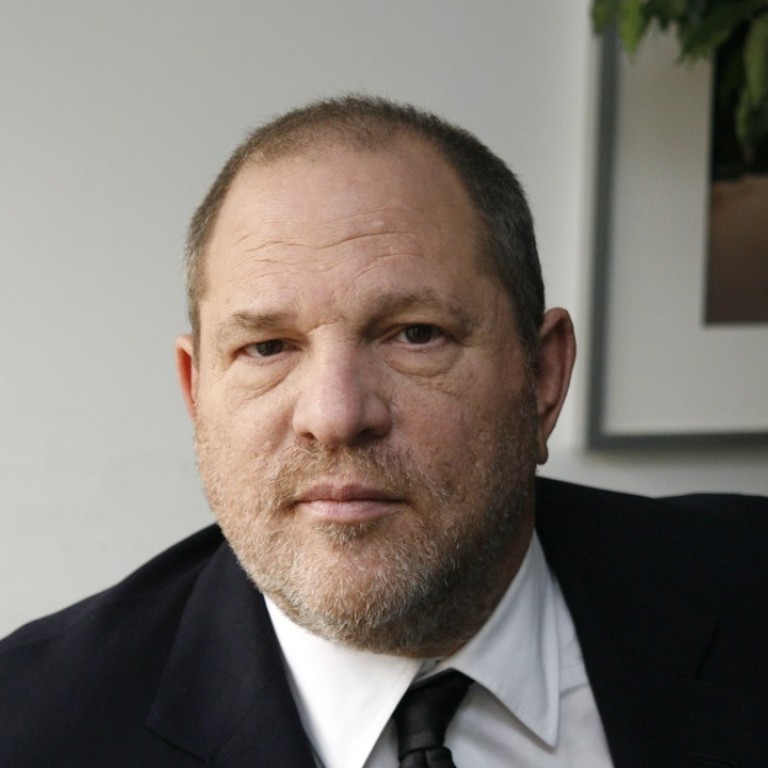
Don’t write off Weinstein’s comeback, because Hollywood works on cold opportunism
The last time I met Harvey Weinstein was in 2008 at the Captain’s Bar at the Mandarin Oriental hotel through a friend of mine who was a film financier.
Weinstein suddenly decided to step up onto the stage, ask the singer for the microphone, and proceeded to launch into his version of Frank Sinatra’s My Way. Brash and bellicose - a man with boundless confidence. But, he is in trouble today because he did it his way for too long.
The media and Hollywood are writhing in an apoplectic fit as it tries to exorcise its own long running and not-so-secret history of hypocrisy in sexual harassment.
“I’m shocked, shocked there is gambling is going on in here,” Claude Rains remarked in the classic movie Casablanca.
Hollywood’s shabby treatment of women has already been explicitly described in the 1995 book You’ll Never Make Love in This Town Again, with celebrities named. The only difference is that women today feel more empowered, and have been empowered by social media.
Statements by the A-list stars have so far been carefully proscribed press releases rather than a stream of indignant tweets. Relationships are precious in the business of Hollywood and no one wants to write off someone important who may stage a strong comeback. And the industry’s cold and opportunistic economics might just give Weinstein his second act.
Exploitation, especially economic, dominates and fuels the Hollywood ecosystem more than sexual exploitation. I knew people who voluntarily worked at Oliver Stone’s production company without a salary. They read scripts and assisted productions simply to get a break. Few industries in this world can attract people from all backgrounds to slave for nothing.
There’s a popular notion that Weinstein is truly finished and he is banished from the business. That should not be a foregone conclusion, because of the tumultuous nature of today’s film business.
China’s investment, technology and changing viewer habits are driving intense demand for content. Most of all, the ability to make money is the key determinant of staying alive in show business.
Successfully producing, marketing and distributing a film is as some industry people say, like “capturing lightning in a bottle.” It is all too easy to forget Weinstein’s immense track record of producing award winning and profitable films.
Weinstein Co., which Harvey cofounded with his brother Bob, owns a library of more than 100 titles including Inglorious Bastards. It also owns the television show Project Runway and the Dimension genre film label, which produced Scream 4. The Weinstein brothers own their company along with major institutional investors including Goldman Sachs, French TV company TF1, and global ad firm WPP Group.
The company has reported US$2.4 billion in combined US box office takings since its establishment in 2005, including US$122.6 million so far this year through six movies. Its most successful year was in 2013, when it grossed US$463 million in the US, mostly contributed by Oprah Winfrey’s star turn in Lee Daniels’ The Butler, which earned US$116 million.
People more powerful than Weinstein have been brought down. Few have mentioned the story of the rise and fall of uber agent Michael Ovitz who transformed the agency and film making business through his role as co-founder of Creative Artists Agency. Ovitz grew his concept of selling “package deals” to studios where CAA would brutally leverage its talent roster to assemble and present scripts, directors and actors to studios. It made him very powerful.
And he was reviled and feared by rivals for his aggressive tactics. But, he failed to stage a comeback after a 14-month tenure that ended in December 1996 as President of the Walt Disney Company. Even a high powered agent can be frozen out of Hollywood.
But, Weinstein is not an agent and as long as he can find scripts and turn them into hit films, financing will find him.
Starting at his first studio Miramax, then at Weinstein Co., he’d won more than 300 nominations for his films, resulting in 81 Oscars. This includes five Best Picture winners – The English Patient in 1997, Shakespeare in Love in 1999, Chicago in 2003, The King’s Speech in 2011, and The Artist in 2012.
While his future conduct presents a corporate governance nightmare, it’s not hard to imagine structuring restrictions around his workplace behaviour if you want his services. The Hollywood hit machine is more ravenous than ever with new sources of demand.
Netflix and other well financed internet streaming services are changing the independent film business by directly competing away Weinstein’s former dominance in bidding for independent films and shows. But, much more is happening.
Netflix recently renewed Adam Sandler’s four picture deal despite him being critically panned for sexist and racist content. Netflix is an intensely data driven operation. Its big data algorithms have enabled it expand globally by serving the varied tastes of different people no matter how much the artist or producer is detested by mainstream opinion. Competition from new entrants like Apple only amplify that trend.
China’s growing demand for media influence either through financing or studio ownership means it must navigate the system of producing or finding it. The underlying motivations and reasons for the world’s two largest entertainment markets to further integrate remain a driving force for content development.
According to the Hollywood Reporter, Huahua Media and Shanghai Film Group’s USD1 billion investment in Paramount’s three year production is slowly grinding towards completion. Capital restrictions do not spell the end for China’s strategy.
As Hyman Roth exhorted to Michael Corleone in The Godfather in reference to ignoring a particularly heinous assassination, “It had nothing to do with business.”
And thus, the business of Hollywood will continue.

